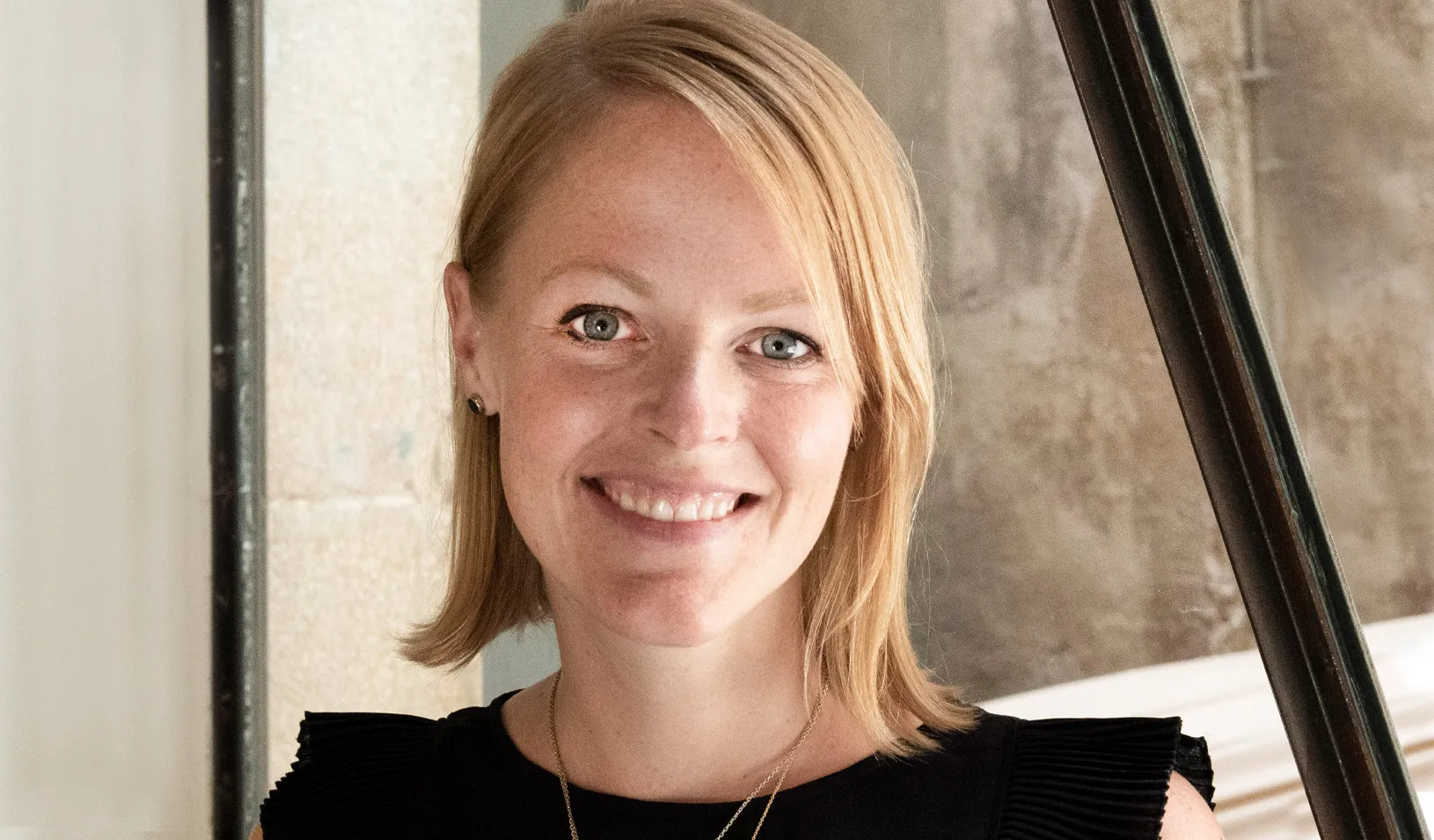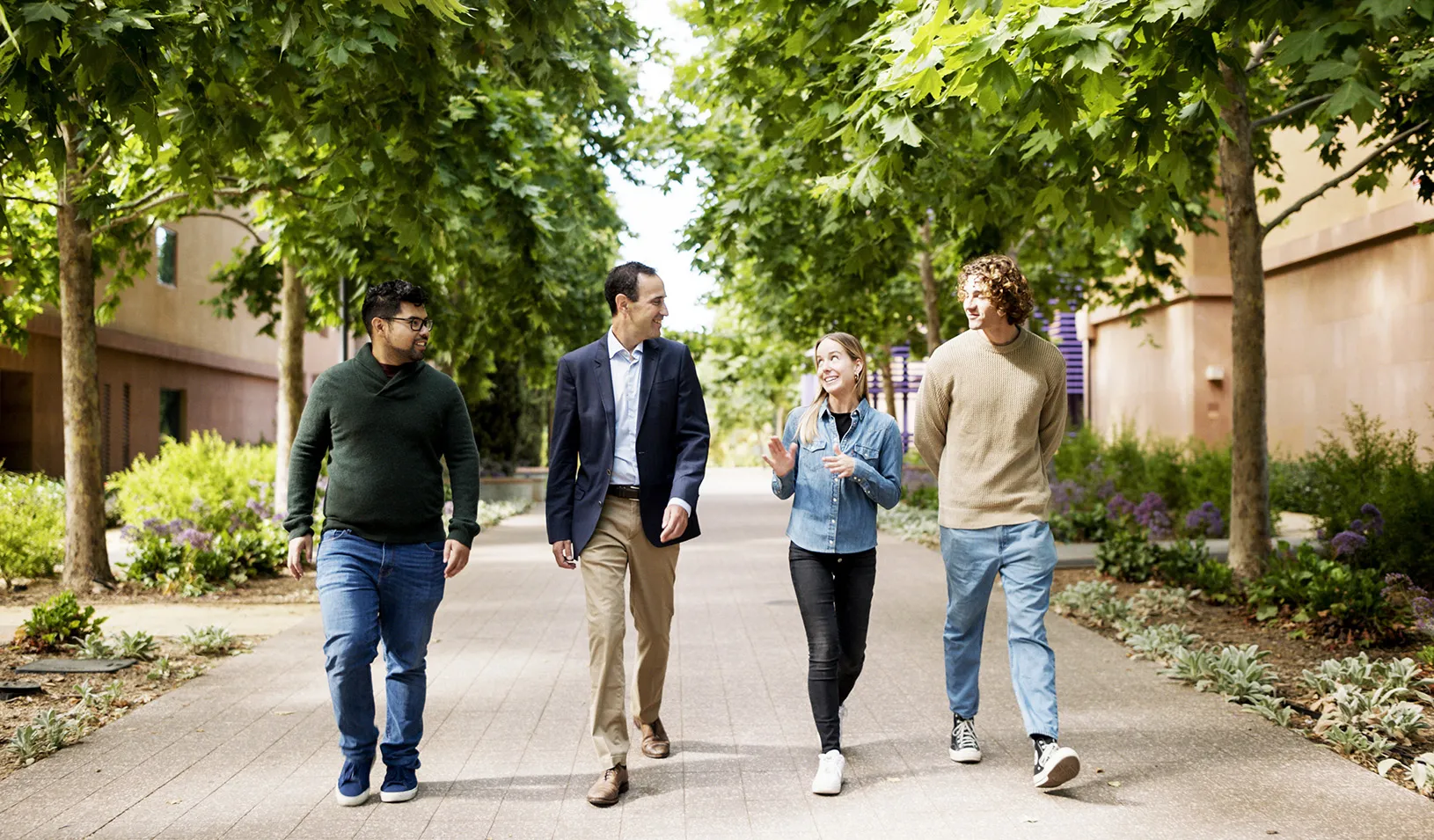Dean's Report to Alumni on the State of the School
In September Dean Robert Joss wrote to alumni on the state of the school. Here is the transcript of his letter.
September 15, 2002
It is my pleasure each fall to report on the state of the school, to thank you for your ongoing support, and to keep you up to date on important events and work being done here. Like other individuals and institutions throughout the world, the Stanford Graduate School of Business has faced challenges in the past 12 months.
We have worked hard to help our graduating students and alumni/ae find rewarding jobs in an atmosphere of serious economic upheaval. The importance of our alumni network took on new proportions last September in a time when maintaining contact with friends became of paramount importance. As a reflection of the current economic picture, this fall’s incoming students present the greatest financial aid demand in the history of the school. Today our goals — to create leaders and ideas that improve management organizations, to encourage and support adherence to the highest ethical standards, and to support commitment to public and community service — have never been more important as we seek to help leaders as well as individual investors make smart choices about the future.
We continue to be optimistic about our nation, about the world economy, and about the school. In October, 2001 Dean Emeritus Mike Spence became the third business school faculty member to receive a Nobel Prize in economics when he and two academic colleagues were honored for work on signaling theory. The MBA Class of 2002 exhibited optimism last spring: A record 91 percent of the class pledged a precedent-setting $310,000 for the class gift to fund fellowships and expand the second-year seminars. And alumni support for the school remains high. Today’s uncertain business climate makes this broad support base even more critical than in the past. We have realized a net growth of 11 faculty members in the past three years, including welcoming two senior professors and five other very talented junior faculty this fall.
At the program level, I am particularly enthusiastic about the activities of our new Center for Social Innovation (CSI) — created to promote management solutions to social problems through research, teaching, and outreach. Since the Public Management Program was founded in 1971, Stanford GSB has been a recognized pace setter in nonprofit leadership. While these decision makers face increasingly complex social problems, there has been little systematic research into the application of proven business and market solutions for social-purpose organizations. The new center will support academic study, including an annual Research Fellows Program to encourage some of the world’s leading academics to focus on a specific topic selected each year. Work is also moving forward on a journal to explore both academic research and the ideas of practitioners working in the field of social innovation.
Led by Dale Miller, a social psychologist who joins us as the Morgridge Professor of Organizational Behavior, and faculty colleague James A. Phills Jr., the Center for Social Innovation currently has 17 faculty affiliates from the business school and other academic disciplines within the University. CSI has launched the Environmental Sustainability Initiative (ESI), founded on the tenet that the sustainability of our environment is integral to successful business. The center also has been the impetus for creating the Executive Program for Nonprofit Leaders, a two-week program for 48 participants whose attendance is significantly subsidized through the business school’s CSI Fellowship program made possible by our center supporters.
Today, the school has a proven track record for successfully using the research center model to stimulate activities focused in certain areas. The Center for Entrepreneurial Studies (CES), created in 1996, has evolved into a model for bringing together research, teaching, and community engagement. All of the research centers foster interdisciplinary discussions and work among faculty, helping to generate new courses and cases, innovative approaches to research questions, and the collection and sharing of data that can open new avenues of discussion. Centers also bring together research associates, case writers, and other staff members to support faculty and activities such as speaker’s forums and conferences.
When the Center for Entrepreneurial Studies was founded, debate raged whether entrepreneurship could be taught. Research by the Stanford Project on Emerging Companies analyzed the early growth of more than 170 Silicon Valley firms and produced ideas that showed the answer to be a resounding “yes!” The center also has brought business leaders and entrepreneurs into classrooms to teach collaboratively with tenure-line faculty, creating new synergies and new approaches to the issues facing young firms. Alumni/ae contributed to research in this area by responding to a 1997 questionnaire asking about their personal career trajectories. This data is now being mined by faculty members looking for answers to questions such as “Are there identifiable characteristics shared by successful entrepreneurs?”
The Center for Electronic Business and Commerce was founded in 1999 to support research on the role and impact of the Internet. One of its founding goals was to integrate an understanding of the effects of electronic business and commerce into all aspects of the school’s curriculum. That goal appears to be on target. Dozens of papers written by faculty from most of the school’s major disciplines have focused on Internet-related topics, more than 50 new electronic business cases have been added to the school’s collection, and researchers have created data partnerships with a variety of firms to fuel ongoing academic investigation. Work supported by the center has been integrated into a variety of classes such as Supply Chain Management and Strategic Management of Technology and Innovation.
In addition to fostering new research and courses, we are putting effort and resources into giving our graduates access to the latest ideas, trends, cases, speeches, and other activities at the school. I believe that the time spent here as a student is just the beginning of the learning process. Our Alumni Relations and Executive Education offices are key links in keeping you abreast of what is being discussed in classrooms today. Alumni/ae and guests are invited to Executive Forums, many of them held in cities outside the United States, and to Alumni-Faculty Seminars held on campus. Online resources are available through the Lifelong Learning page on the school’s alumni website and include summaries and videos of campus speakers and conferences, as well as reading lists and examples of work going on in classrooms. Executive Education is developing multimedia CDs of faculty seminars that will include study questions, written materials, and reading lists. Watch for the monthly newsletter @GSB Today that summarizes recent events and provides links to Web-based resources.
The world today needs sound management in all its institutions — educated managers and intelligent, highly principled management teams provide much needed leadership. By generating research and insights that help to develop top managers in our MBA and Sloan programs, by reaching out to business leaders through executive education, and by offering lifelong learning to alumni/ae, we have an enormous impact on the world of management. I know you share my pride in the quality of work done here and in the graduates of our program, men and women whose success has contributed to the school’s worldwide reputation and history of leadership. I invite you to continue to be an active part of this organization, to be involved in our programs, to use our online services, and to support our ongoing efforts to create leaders and ideas to meet the challenges of tomorrow.
By Robert Joss, Philip H. Knight Professor and Dean
For media inquiries, visit the Newsroom.
Explore More
Erin Nixon Joins Stanford GSB as Assistant Dean of Admissions

Nia Rose Froome, MBA ’23: Making Local, Fresh Food Available for All

New Research Fund Promotes Responsible Leadership for the Next Century
